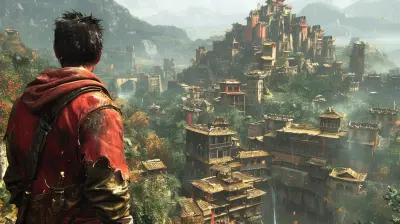Why Fighting Game Narratives Matter More Than You Think
12 October 2025
When you hear the phrase "fighting game," chances are that a whirlwind of fists, flashy combos, and chaotic button-mashing come to mind. You think of epic clashes between characters with over-the-top special moves. And let’s be honest, who doesn’t love pulling off a well-timed Hadouken or landing a brutal Fatality? But, if you dig a little deeper, there’s another layer to these games that often gets overlooked—their narratives. Yes, fighting games have stories, and they’re way more significant than most people give them credit for.
Now, I know what you’re thinking: “Stories? In fighting games? Don’t people just skip the dialogue to get back to the punching?” Sure, that happens, but hear me out. The narratives in fighting games have a surprising level of depth, and they play a critical role in shaping the experience as a whole. Let’s break it down and unpack why fighting game narratives deserve more respect than they’re getting.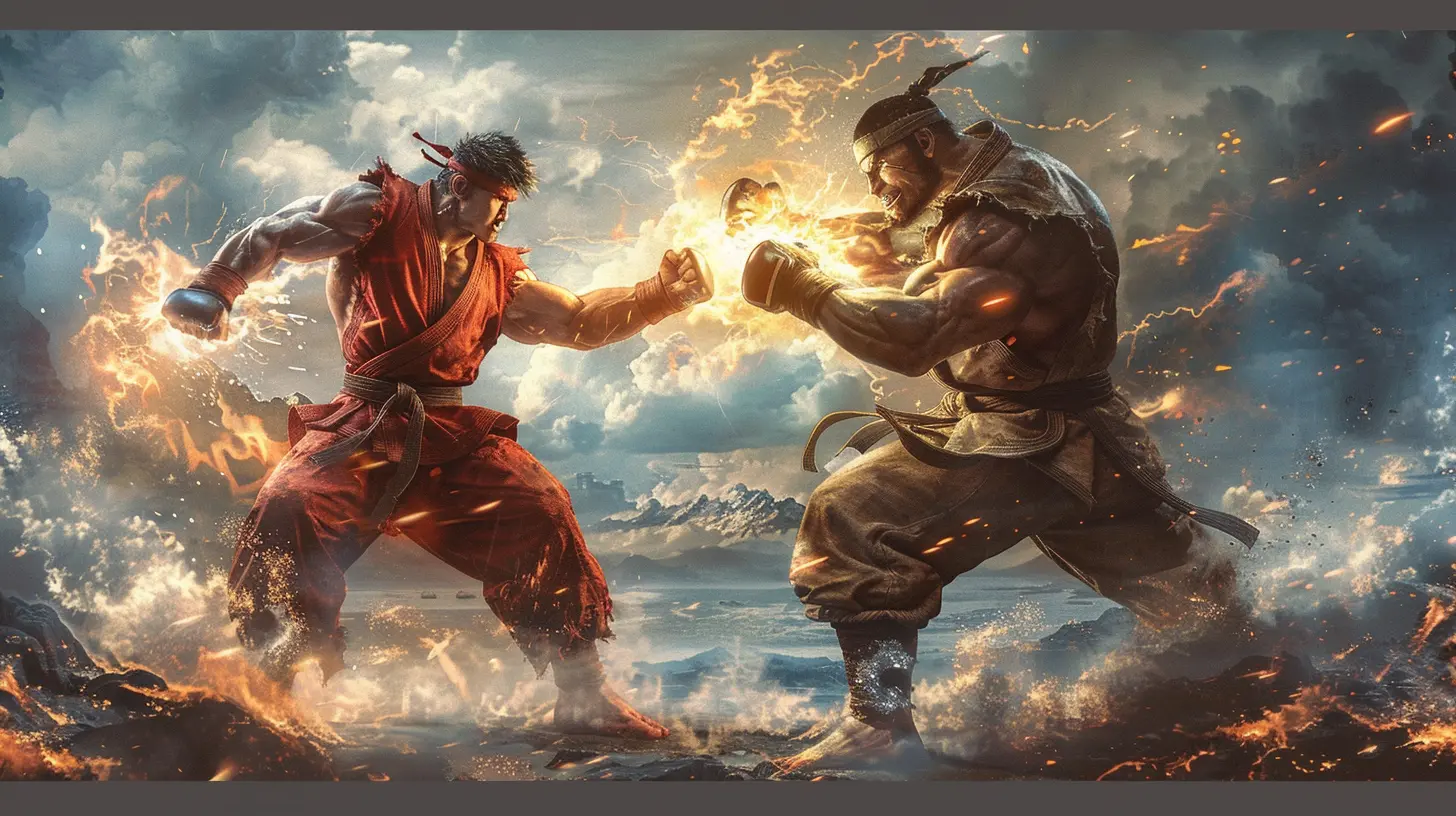
Fighting Games Aren’t Just About Fighting
At face value, fighting games seem like the perfect embodiment of “style over substance.” You’ve got larger-than-life characters, insane graphics, and battles that border on cinematic. But there’s more happening under the surface than just flashy punches and kicks. The stories in these games help create meaning behind those confrontations, turning them into something more than just endless rounds of brawling.Think about it this way: would you be as invested in a fight if you didn’t know why the characters were duking it out? Probably not. The narrative adds stakes. It gives you a reason to care about whether Scorpion beats Sub-Zero or why Ryu’s internal struggle is more than just mastering his moves. Without that context, the fights feel empty—a bit like eating popcorn without any butter. Sure, it’ll fill you up, but where’s the flavor?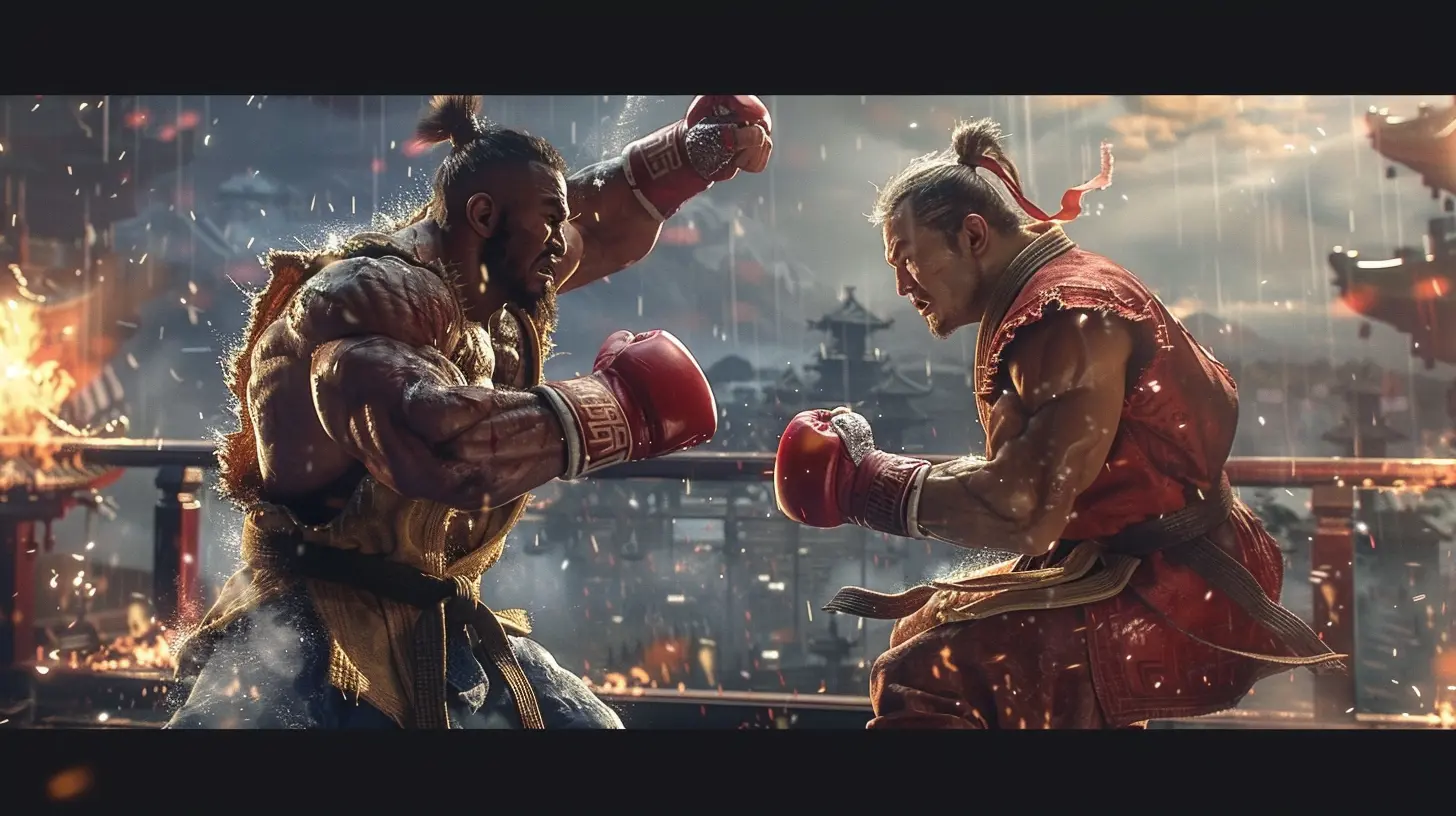
Characters That Are More Than Their Movesets
One of the coolest aspects of fighting games is the sheer variety of characters you get to choose from. But what makes those characters stand out isn’t just their movesets; it’s their backstories and personalities. These narratives make the characters feel like actual people (or, in some cases, monsters, ninjas, or gods—let’s not get too picky), rather than just avatars for combat.Take Chun-Li from Street Fighter, for example. She’s not just "that fast martial artist with killer kicks." She’s an Interpol agent driven by a desire to bring justice to those who wronged her family. Her motivations give weight to every fight she’s in. Or consider the cast of Mortal Kombat. Each character, from Liu Kang to Shao Kahn, has a distinct story arc that ties into the overarching tale of realms clashing.
These backstories help players connect with the characters on a deeper level. Suddenly, you’re not just spamming combos—you’re rooting for a character, understanding their struggles, and maybe even relating to them. It’s hard not to feel a spark of pride when your favorite underdog character overcomes the odds and wins the tournament.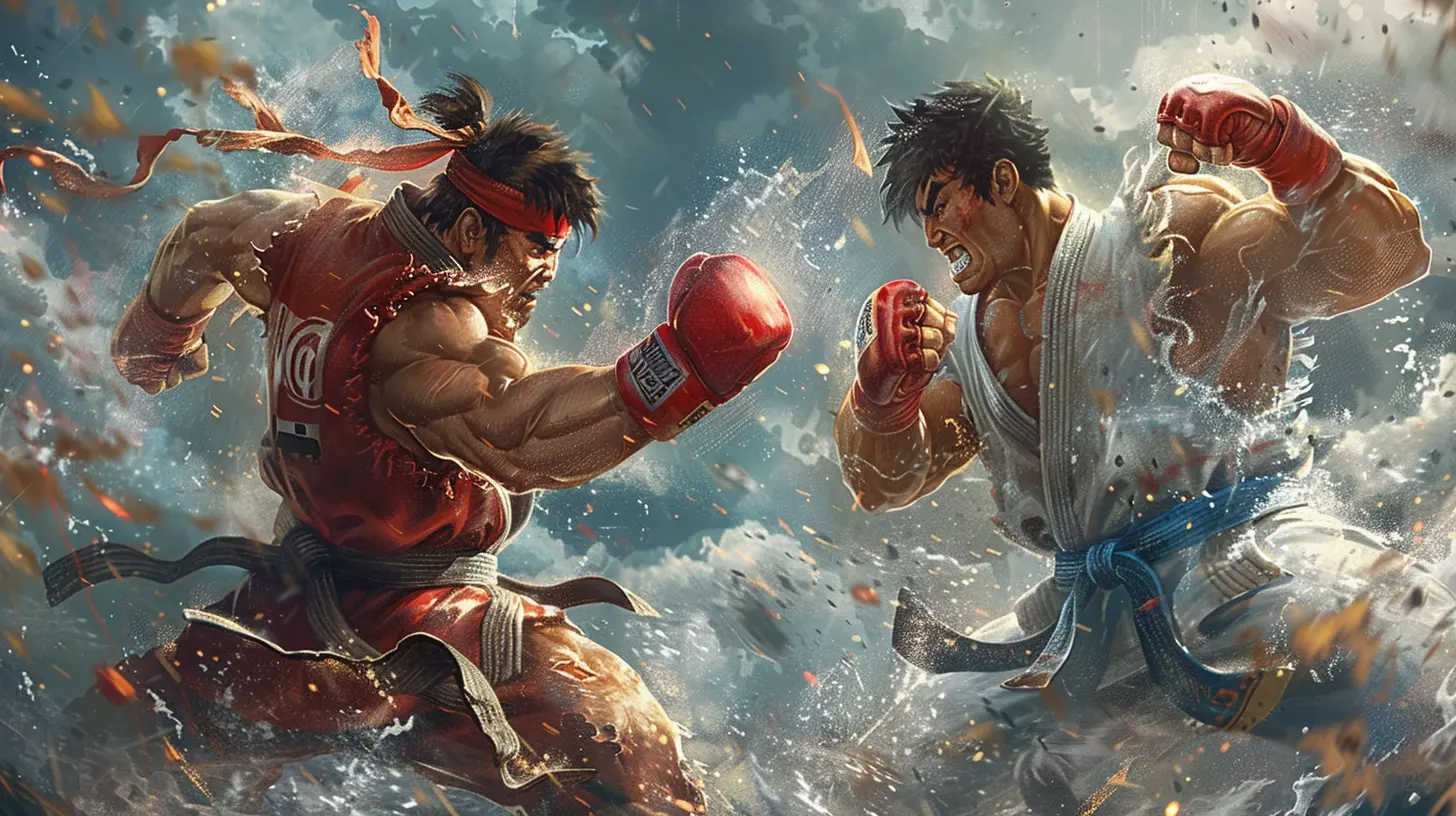
The World-Building Is Next-Level
When you think of great video game stories, RPGs like The Witcher or Final Fantasy usually get all the love. But let’s give fighting games some credit—they excel at world-building in ways that are just as impressive. The worlds these games create are rich with lore, rivalries, alliances, and traditions that build an immersive backdrop for all the action.Take Tekken, for instance. The series isn’t just about flashy showdowns at the King of Iron Fist Tournament. It’s about the Mishima family’s generations-long feud, filled with betrayal, revenge, and even people throwing each other into volcanoes (because why not?). That narrative tension provides the framework for the series’ entire universe.
Or how about Guilty Gear? It's not just a wild anime-inspired brawler—it’s set in a futuristic post-apocalyptic world with complex politics, intriguing factions, and deep philosophical questions. The storylines make it so much more than just a "beat-em-up"; they create an experience that rivals some of the best sci-fi epics.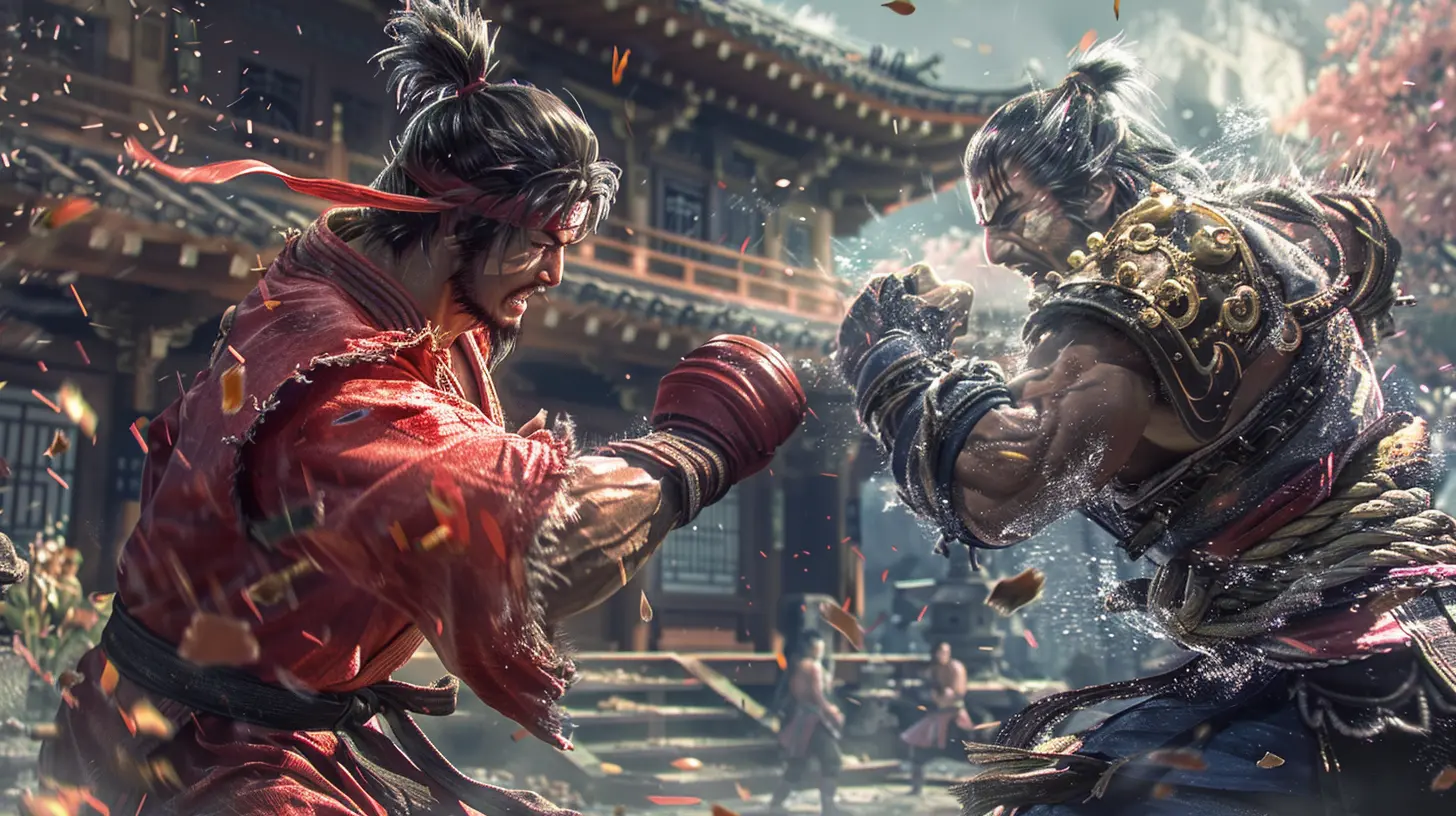
Arcade Roots, But Modern Storytelling
Historically, fighting game narratives were kind of an afterthought. Back in the arcade days, storylines were often tacked on through brief text scrolls or simplistic cutscenes that felt more like excuses for punching things. But as gaming evolved, so did the storytelling in fighting games. Developers realized that players were hungry for depth, and they started delivering narratives that felt meaningful.Modern fighting games now weave story modes into their DNA. Look at Mortal Kombat 11. Its cinematic story mode feels like you're playing through a blockbuster movie, with branching timelines, emotional arcs, and plenty of jaw-dropping moments. Or Injustice: Gods Among Us—a game that took DC Comics characters and crafted a dark, engaging tale that redefined what fighting game stories could achieve.
These games prove that fighting games don’t need to sacrifice storytelling for gameplay. Instead, the two can complement each other, with the narrative enhancing the tension of every punch, kick, and combo.
They Create Emotional Investment
Let’s face it—good stories make us feel. Whether it’s excitement, sadness, or jaw-dropping amazement, stories have a way of sticking with us. Fighting game narratives do the same. They bring drama, tension, and emotional stakes into what might otherwise feel like mindless competition.Who could forget the heartbreak of seeing Jun Kazama’s disappearance in Tekken, or the bittersweet arc of Ken and Ryu’s friendship in Street Fighter? These moments linger in your mind long after you’ve put the controller down. They turn a simple match into a clash that feels personal, like watching a favorite sports team go head-to-head with their biggest rival.
And let’s not ignore how these stories create moments of triumph. Whether it's finally defeating a seemingly unbeatable boss or finishing a tournament arc, the sense of accomplishment hits harder when there’s a meaningful story driving it. When you realize your victory has advanced a character’s personal journey, the win feels more earned.
A Platform for Representation
Another thing fighting game stories get right is representation. These games have always embraced diversity, offering characters from countless cultures, backgrounds, and walks of life. Even better, their narratives often celebrate those differences rather than merely using them as aesthetic choices.Consider how Street Fighter boasts a cast of characters from all corners of the globe, each with their own backstories that tie into their cultural identities. Or look at Mortal Kombat, which has long featured strong female characters, powerful characters of color, and even LGBTQ+ representation. The stories for these characters don’t just showcase inclusivity—they highlight the shared humanity beneath the surface of our differences.
This kind of representation sends a powerful message: anyone can be a hero. When you see a character who looks, talks, or thinks like you getting their moment in the spotlight, it’s hard not to feel a little inspired.
Why the Future of Fighting Games Is Narrative-Driven
The fighting game genre isn’t slowing down anytime soon. As the industry continues to grow, so does the demand for deeper stories. Fans don’t just want great gameplay—they want amazing storytelling to match. And developers are stepping up to the plate, putting more effort into crafting narratives that rival those of other genres.Games like Dragon Ball FighterZ, King of Fighters XV, and Guilty Gear Strive have demonstrated that the future of fighting games is rich with narrative potential. With more advanced technology, developers can blend cinematic storytelling with polished gameplay like never before, ensuring that fighting games remain as engaging and immersive as ever.
Wrapping It Up
To dismiss fighting game narratives as unnecessary fluff is to seriously underestimate the genre. These stories aren’t just window dressing—they’re an essential part of what makes these games memorable and impactful. They give players a reason to care, create emotional investment, and bring larger-than-life characters to life in ways that keep us hooked.So, the next time you boot up your favorite fighting game, take a moment to appreciate the story behind the punches. You might just find yourself more invested than you ever expected. After all, fighting isn’t just about landing the winning blow—it’s about why the fight matters in the first place. And that’s a story worth telling.
all images in this post were generated using AI tools
Category:
Fighting GamesAuthor:

Audrey McGhee
Discussion
rate this article
2 comments
Harrison McQuillan
Great insights! It’s fascinating how fighting game narratives enrich character development and player engagement. They add emotional depth and context to gameplay, making the experience more immersive. Looking forward to seeing more discussions on how storytelling can elevate gaming as an art form!
January 28, 2026 at 4:54 AM

Audrey McGhee
Thank you! I'm glad you found the insights valuable. I agree—storytelling truly enhances the emotional connection and immersion in fighting games. More discussions on this topic are definitely on the way!
Maria Jones
Great read! It’s so true that fighting game narratives add depth and connection to characters. They really enhance the experience beyond just combos and skills. Can’t wait for the next installment!
October 12, 2025 at 4:17 PM

Audrey McGhee
Thank you! I'm glad you enjoyed it. I completely agree—strong narratives truly elevate the fighting game experience. Excited for what’s next too!
